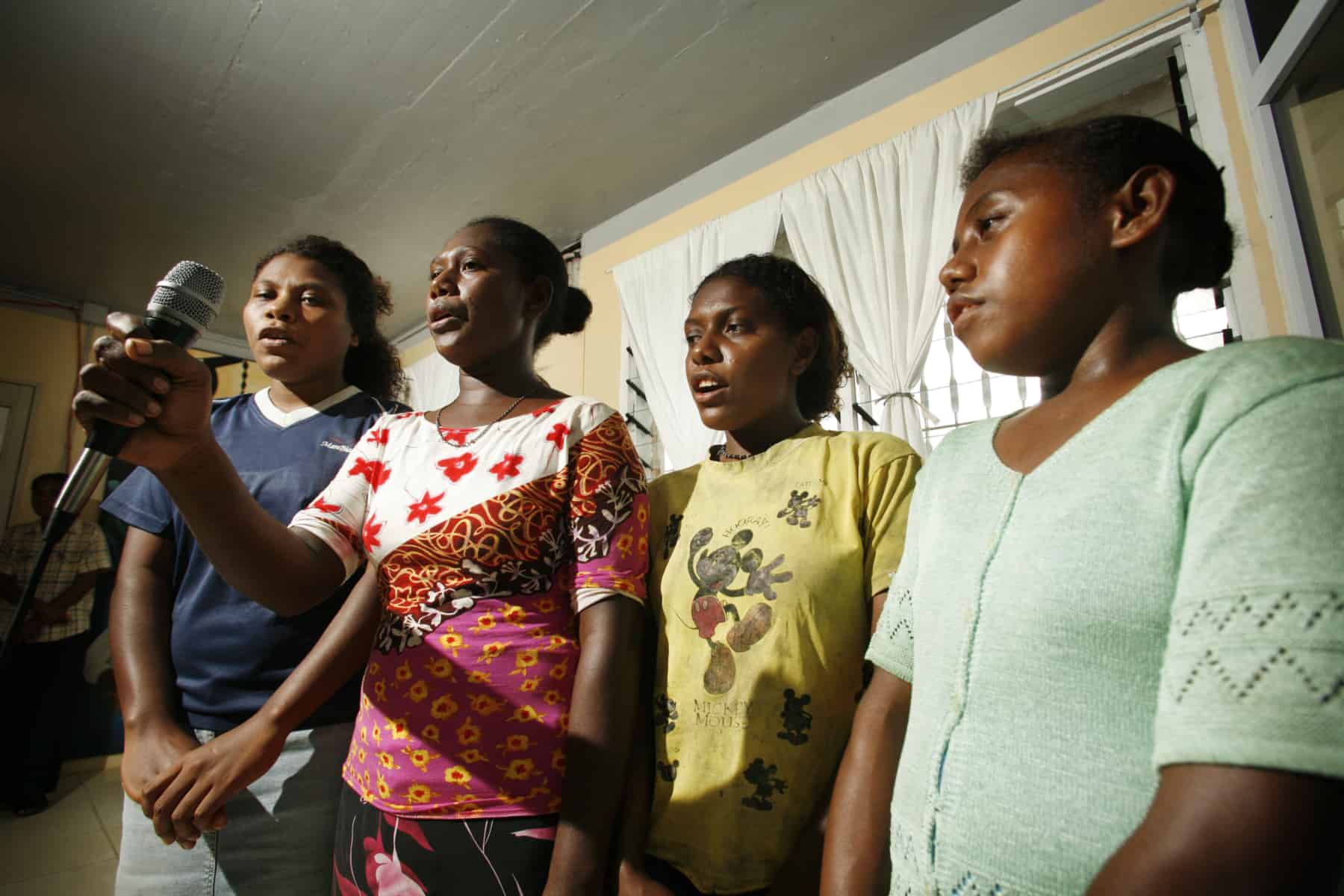Image: Women leading a presentation. Photo credit DFAT, Flickr 2013.
WHAT IT’S ABOUT
How and where leadership is working to produce positive development outcomes, and how this is influencing the development of reciprocal relationships between citizens and the state.
- What explains cases of developmental leadership in Solomon Islands?
- When do cases of developmental leadership improve citizen-state relationships?
- How can developmental leadership be effectively supported?
WHAT WE EXPECT TO LEARN
Examples of good leadership for development. Particularly, how coalitions and networks enable effective local leadership, how this can be linked into wider state-building processes, and how donors can support leadership.
PROJECT DESCRIPTION
A key challenge in Solomon Islands is building productive, accountable relationships between citizens and the state. This includes building demand for responsive government, accountable service delivery, and strengthening the authority and legitimacy of the state.
This research aims to identify and learn from cases where leadership has enabled positive development outcomes in Solomon Islands. It will look at how leaders – within and across institutions of the state, church or kastom – have collaborated effectively to enable positive progress in the inclusive provision of vital welfare services, with a focus on health, education and literacy. The research will follow the positive outlier approach, meaning it will focus on cases where there have been successful outcomes and problem-solving. We will unpack the key factors that underlie these cases: from the motivations of the individuals, to how they overcome collective action problems, to the role of local communities and international actors in the wider enabling environment.
“By learning about what has worked, where, and why, we aim to inform local debates about how to improve development outcomes and reduce provincial inequalities. We hope this can generate practical insights on how local and international stakeholders can support developmental leadership, because these actors will need to continue to play a role in supporting development and building community resilience.”
Claire Mcloughlin, Principal Investigator
WHO’S INVOLVED, WHERE
- Tony Hiriasia, University of the South Pacific
- David Hudson, University of Birmingham
- Ujjwal Krishna, La Trobe University
- Claire Mcloughin, University of Birmingham
- Gordon Nanau, University of the South Pacific
- Chris Roche, La Trobe University
COUNTRY
Solomon Islands

Map showing Solomon Islands
TIMELINE
December 2020 – December 2022
CHECK OUT THIS PROJECT’S BLOGS & PUBLICATIONS
- Inclusive Development in Solomon Islands: Unlocking the Potential of Developmental Leadership
- Leadership in the Shadow of the Pandemic: Researching Spaces of Resilience and Transformation
- Pacific Islands’ Leaders Responses and Lessons from the COVID-19 Pandemic
NEWS
Sign up to the DLP Leadership Observatory for more information on DLP projects or visit the DLP Twitter account to join the conversation #LeadershipObvs.
You may like to visit our partner’s website.
- University of Birmingham, on Twitter @unibirmingham
- University of the South Pacific, on Twitter @UniSouthPacific
- La Trobe University, on Twitter @latrobe















